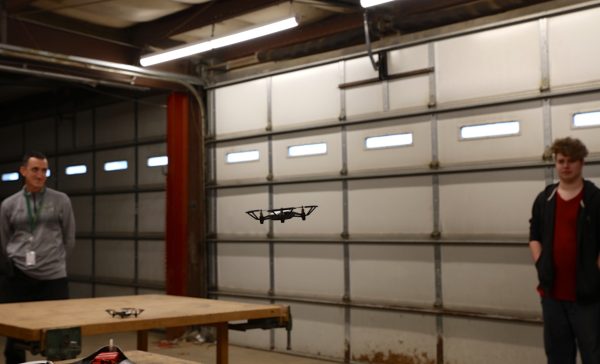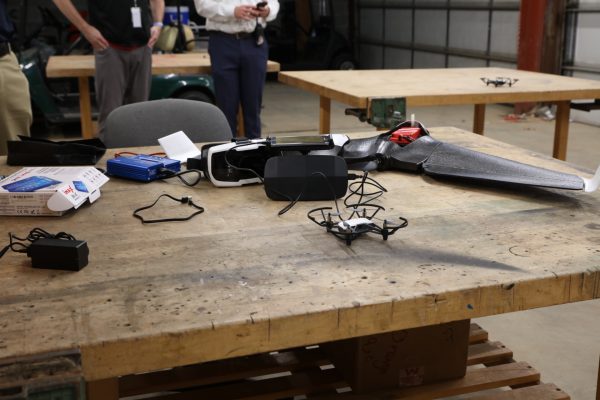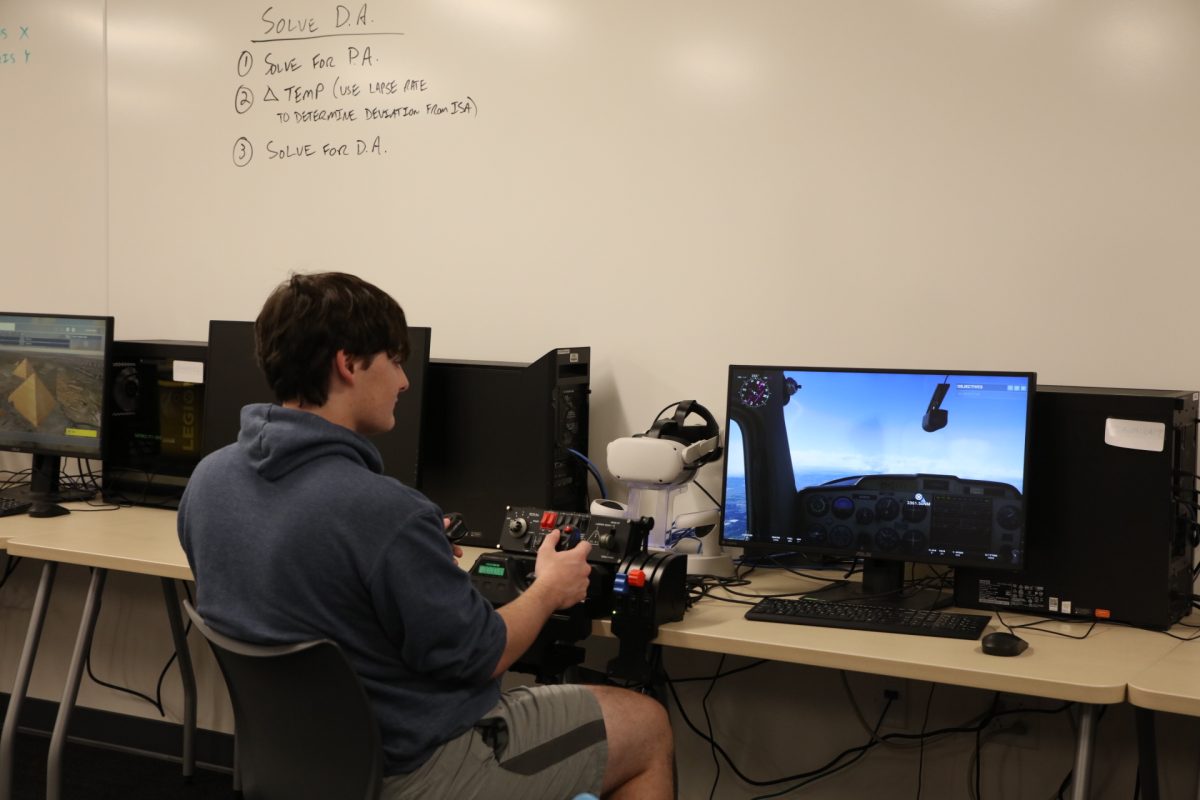In most classrooms, paper airplanes are – and have long been – considered a disruption. In Rob Droege’s classroom, however, paper airplanes are a part of the curriculum.
Last spring, the Lindbergh High School teacher began teaching Aviation 1, the first part of the district’s newly developed two-year program that helps students understand the basics of aviation and gives them the skills and opportunity to receive their drone pilot’s license.
“So the overall goal – and the idea was hatched by (Lindbergh superintendent) Dr. (Tony) Lake – is students getting a FAA Part 107, which is the name for the commercial drone pilot license, so that a student could walk right out of high school and get a pretty well-paying job without going to college or anything else,” Droege said. “It’s a very in-demand field right now, so we’re trying to set up a program to develop those skills, to teach students what they need to know to pass that test.”
This unique program is the only one in the St. Louis area for high school students right now. It was created after the Innovative Technology Education Fund (ITEF) awarded Lindbergh their “Lean Into Learning” grant in 2019, and was further supported by ITEF’s Innovator Grant received by the district in early 2023.

The first grant allowed select members of the district to attend the Aircraft Owners & Pilots Association Symposium, as well as visit schools in Colorado that had aviation programs, helping them develop a long-term plan for an aviation pathway. Talk of building such a pathway had been in the works for the district, and the trip helped shape the idea into a reality. Lindbergh’s program would have begun much earlier, though unfortunately the COVID-19 Pandemic slowed development, delaying its start until spring 2023.
Currently, the district only offers Aviation 1, though Aviation 2 will begin spring semester 2024. Aviation 1 – or “baby ground school,” as Droege has come to call it – gives students the chance to learn general concepts of aviation, like lift and the physics behind flying, though it is ever-changing and continuously evolving as it is such a new program.
“There’s no average day. Some days we’re doing your traditional instruction … then, we’ll turn around and do a (hands-on) activity, like today, where they’re gonna build paper airplanes, and kind of be able to move paper clips around on them and see how that changes the way it’ll fly,” Droege said.
Aviation 2 will take this all a step further, going more in depth on specific things like weather and airspace and piloting and building drones. Students will also focus more on getting their drone pilot’s license. This is where the second grant comes in.

Since April, the $54,871 Innovator Grant has been used to buy the equipment needed for the new course, from more flight simulators to industry grade drones to 3D printers to “a full size plotter.” It also allowed the purchase of equipment for drone soccer – a cutting-edge sport that is quickly spreading across the nation.
“There are these big nets, or goals, that you set up,” Ronni Zagora, executive director of secondary education for Lindbergh Schools, said. “The drones are actually encased in plastic cages so that they don’t get damaged, and the students have to fly them through hoops to score points. It’s kind of like Quidditch if you’re a Harry Potter fan.”
Students in the aviation program will begin learning how to play this spring, while the district has plans to introduce the new sport as an extracurricular activity next school year.
“We’re going to be the first one in Missouri, and students are going to learn how to play it in my class,” Droege said. “Then, hopefully, Lindbergh forms a team, which I’m confident they will. Then, we can get other high schools in the area to buy in as well. In Colorado, for example, where we went to look, it’s a state sport.”
Overall, Droege wants everyone to be reminded that this is a new program, and because of that, some kinks still need to be worked out.
“It’s a work in progress. I mean, truly, and the district’s been completely on board with that,” Droege said. “On one hand, I’m constantly learning how to teach and what these concepts are. I’m not a pilot, I’m not even good at flying a drone, so I’m having to learn as I go. The aviation community is very tight, everybody wants to help and they’re fantastic. I’ve got a good group of people I can call and ask questions.”
“And then how we’re teaching it changes,” he continued. “You know, I teach it once, figure something out, I’ll talk to people and (realize) the kids will understand this better if we teach the lesson using this hands on thing, so then we might go get something that they can do, or find an activity where they’re using something to do the knowledge or do the concept, not just talk about it…It’s ever evolving, trying to get to that next step, trying to figure out what we’re gonna do with it and how to make it easier for the kids to learn… I appreciate that Lindbergh is completely understanding of that, and the kids have been really gracious about letting me figure it out and figuring it out with me. It’s been a lot of fun.”



